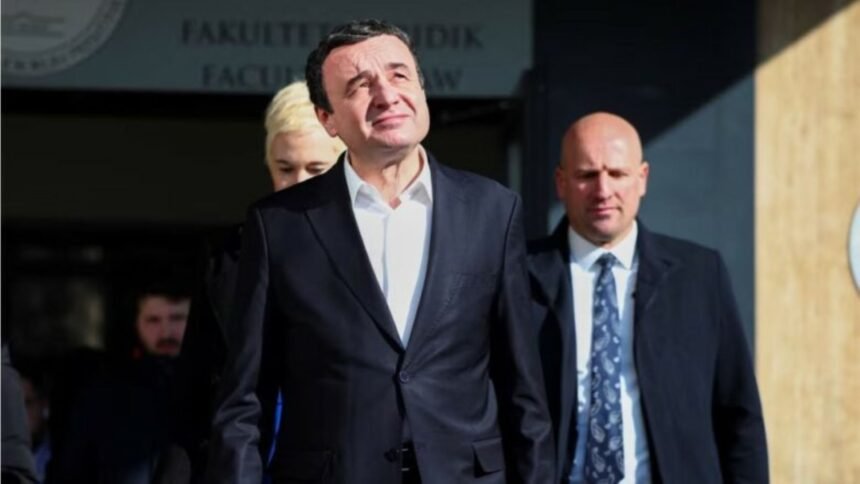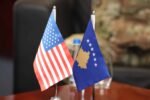The Vetëvendosje Movement (LVV) of Albin Kurti has admitted that it cannot form Kosovo’s new government without including an Albanian party — an option it had previously ruled out, stating it preferred an executive made up only of non-Serb minorities. However, analysts say that Kurti’s party has delayed starting talks on forming a governing coalition, and even if a smaller Albanian party joins the government, it would likely produce a fragile administration, reports RFE.
The winner of the February 9 elections, Vetëvendosje, cannot form a government without a coalition with Albanian parties. It does not have the full support of non-majority communities, and even if it did, that support would not be enough to form an executive.
This was acknowledged on Tuesday by LVV’s deputy leader, Glauk Konjufca, who said forming a new government cannot happen without including Albanian parties in a coalition.
According to him, there are currently two possible scenarios: voting in a new government until a new president is elected — in April 2026 — or voting in a long-term executive.
Both scenarios require 61 votes in Parliament.
LVV, led by acting Prime Minister Albin Kurti, won 48 seats in Parliament; the Democratic Party of Kosovo (PDK) has 24, the Democratic League of Kosovo (LDK) has 20, and the coalition of the Alliance for the Future of Kosovo (AAK) and the Social Democratic Initiative (Nisma) has eight seats.
Kurti invited LDK, led by Lumir Abdixhiku, for talks, but the offer was rejected. During the campaign, Kurti had harsh words for this party, and it seems LDK has not forgotten. Also, LVV had earlier stated that it preferred a government formed only with non-Serb minorities.
Did LVV Delay Talks for the New Government?
Political analyst Dritëro Arifi believes that LVV has “wasted time” and should have begun negotiations with other parliamentary parties to form a new government immediately after the elections.
“From my point of view, negotiations should have started on February 10 to see where they agree programmatically. But LVV did the opposite,” he said.
He believes a “broader Albanian coalition” is needed to create “a good momentum to face major ongoing geopolitical changes and reforms important for citizens’ welfare.”
Emir Abrashi from the NGO Democracy Plus emphasized that a new government could only be formed with the support of non-Serb minority communities if Fatmir Limaj’s Nisma joins the coalition.
Cooperation with Albanian Parties ‘Essential’
Unlike other Albanian parties — which were in opposition in the last legislature — Limaj has said he has no red lines toward any party. PDK also has no red lines but has stated it would prefer an executive without LVV.
However, Abrashi stressed that such a government would not be stable and would face difficulties passing laws in Parliament.
“The first major challenge would be the election of the president next year,” he said, noting that electing a president requires 80 votes in the first two rounds, and only 61 afterward.
“Support from one of the major opposition parties will be essential; otherwise, extraordinary elections would be triggered. However, Kurti’s past rhetoric leaves little room for an agreement,” Abrashi noted.
Non-Majority Communities
In Kosovo’s Parliament, out of 120 seats, 20 are reserved for non-majority communities: 10 for the Serb community and 10 for other minorities.
Even the 10 votes from non-Serb minorities — who traditionally have supported the governing coalition — are not guaranteed for Kurti, although most have said they would vote for an executive led by him.
The nine votes of the Serb List are not even being considered. Since its founding in 2013, the Serb List has been part of every government after winning all the seats reserved for the Serb community.
This time, however, there is a legal basis for excluding the Serb List from the government because one parliamentary seat was won by the Serbian Party for Freedom, Justice, and Survival, led by Nenad Rašić.
Abrashi believes that the Serb List will not play a major role in forming the new government, mainly due to the direct involvement of its former vice-president, Milan Radoičić, in the armed attack in Banjska.







